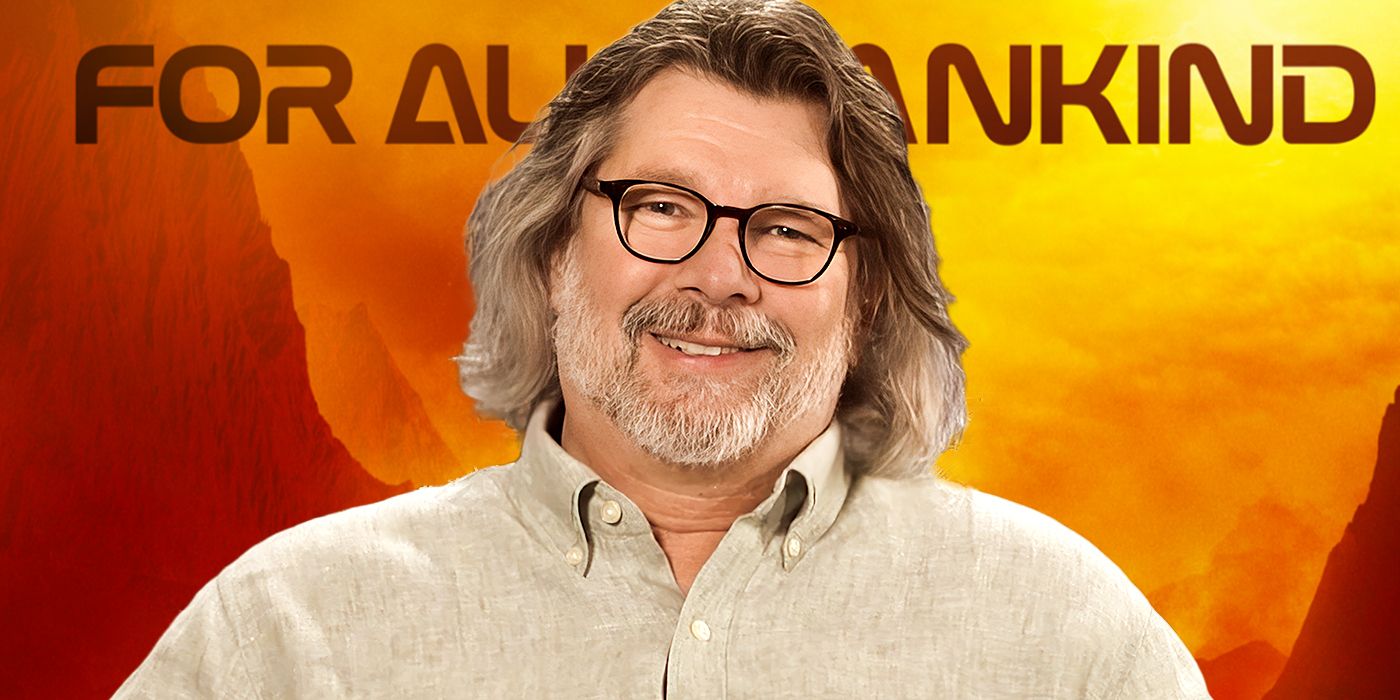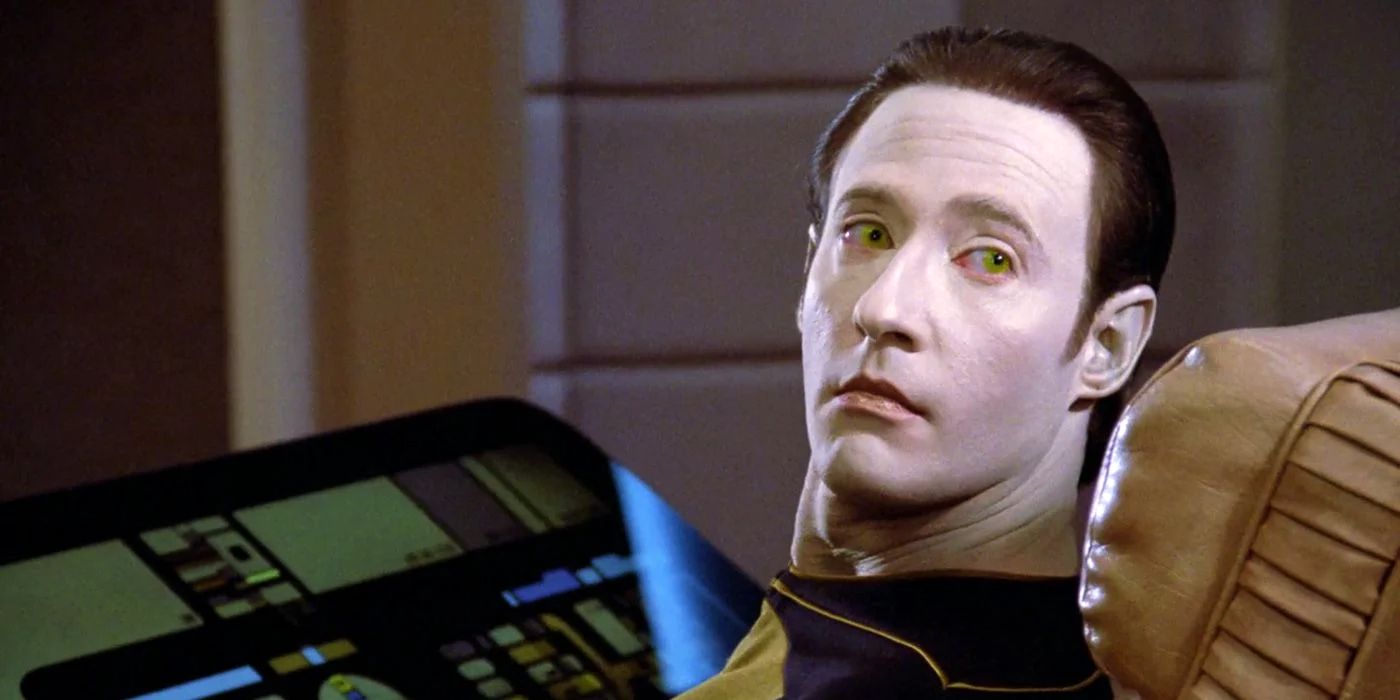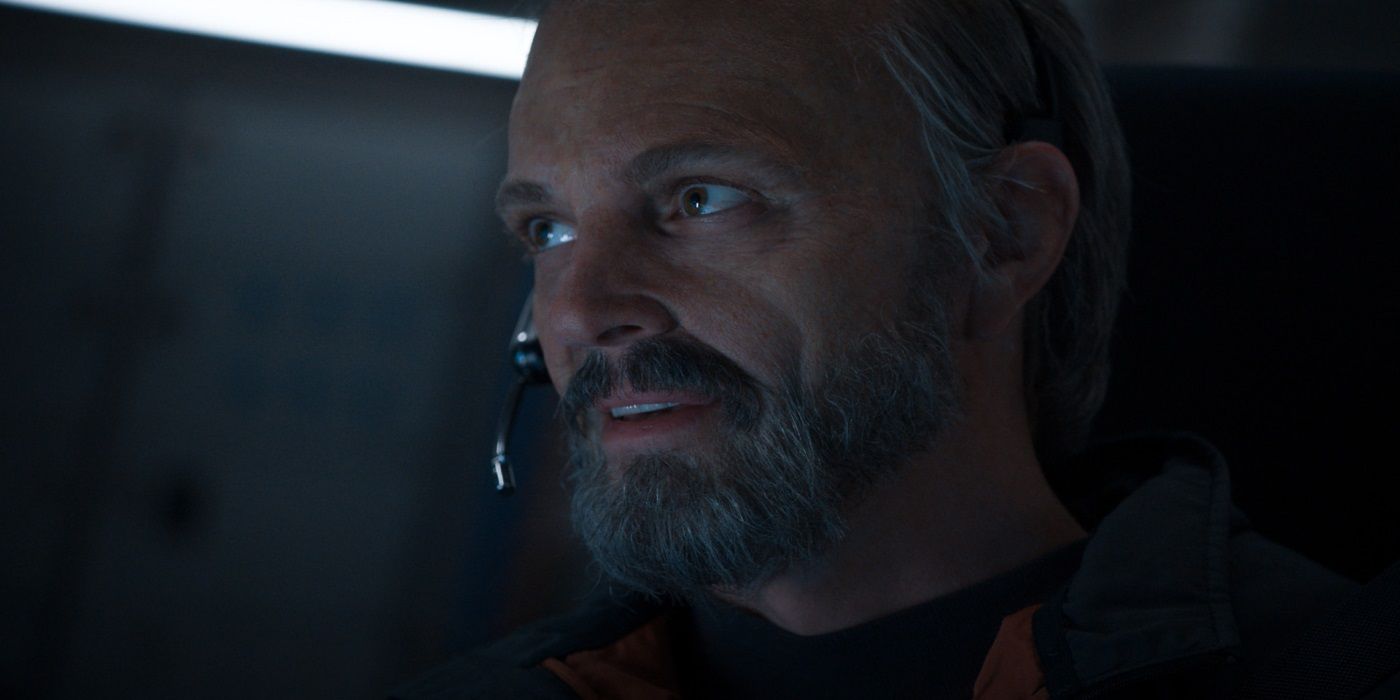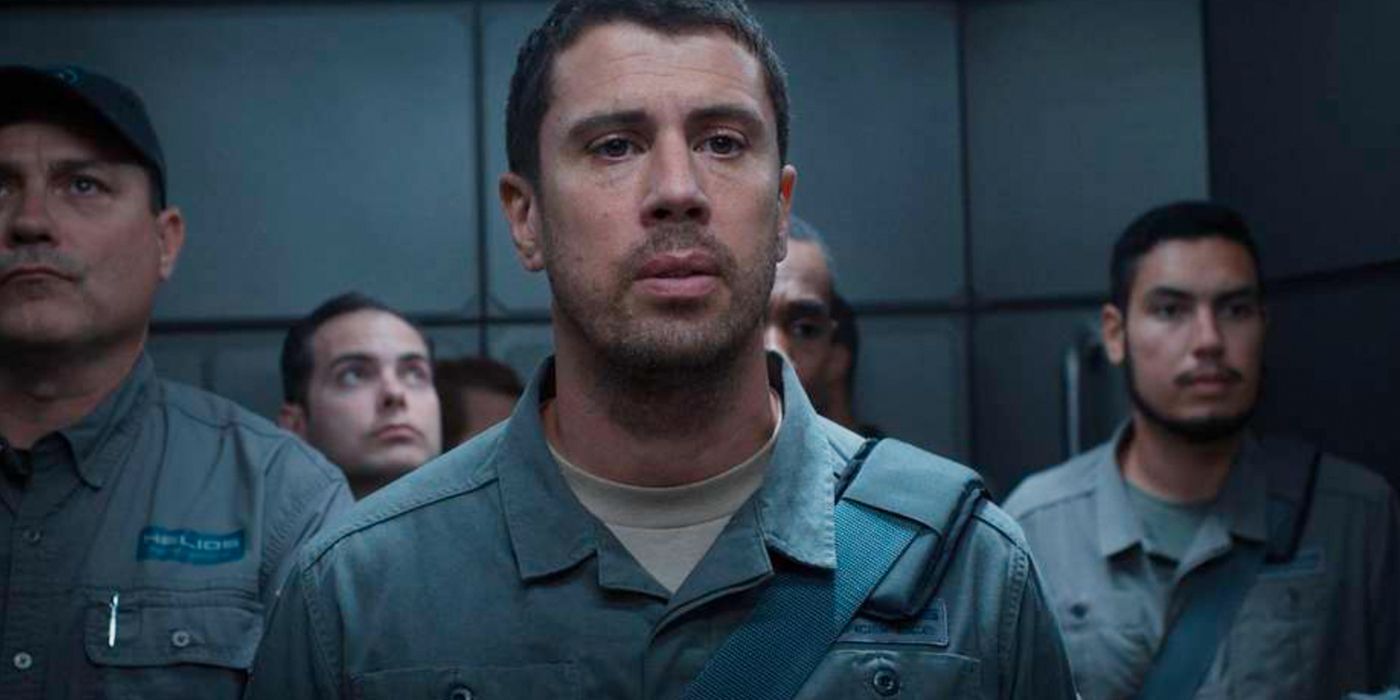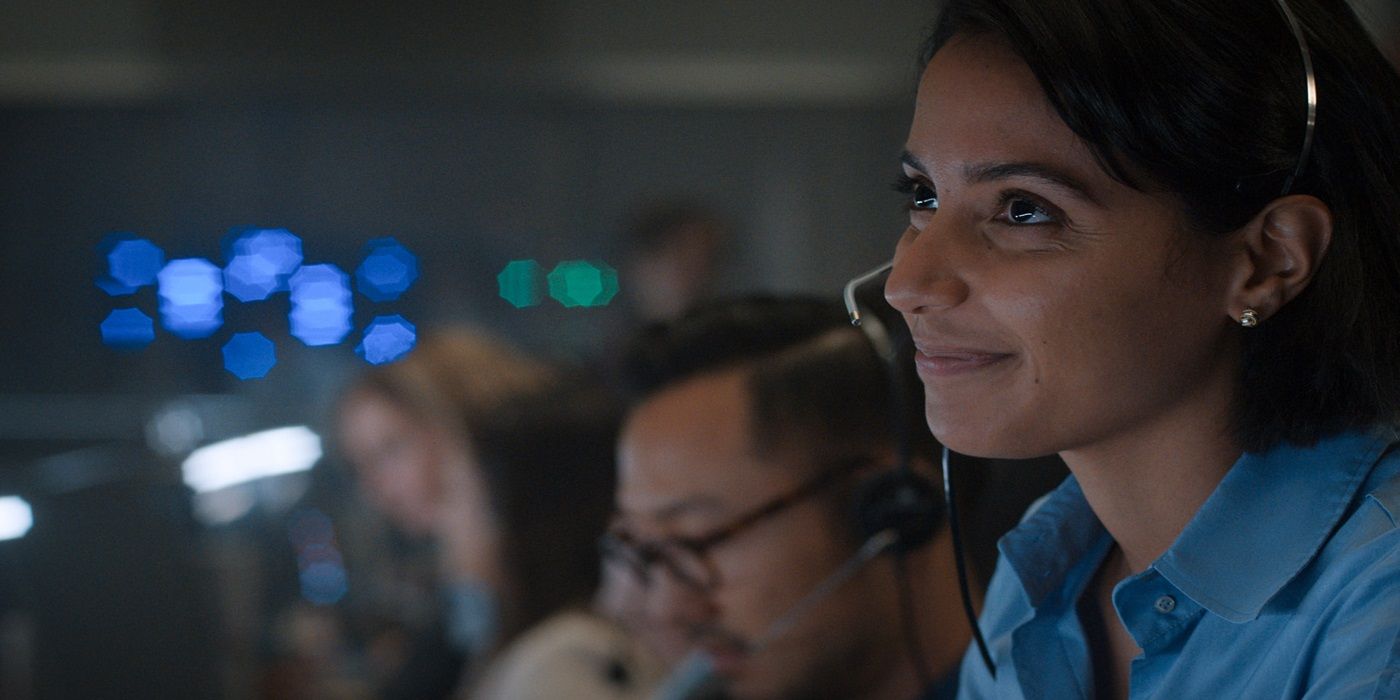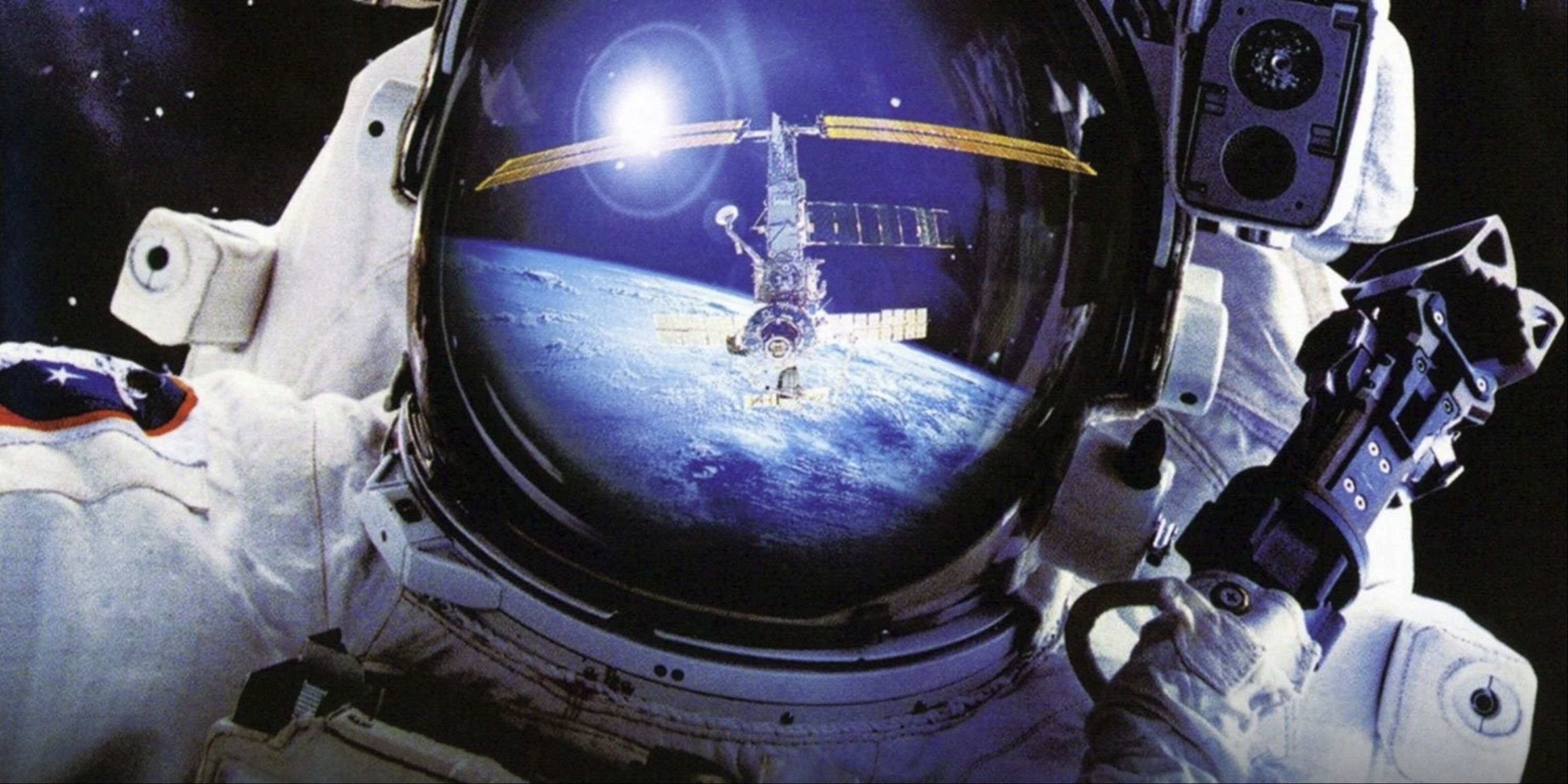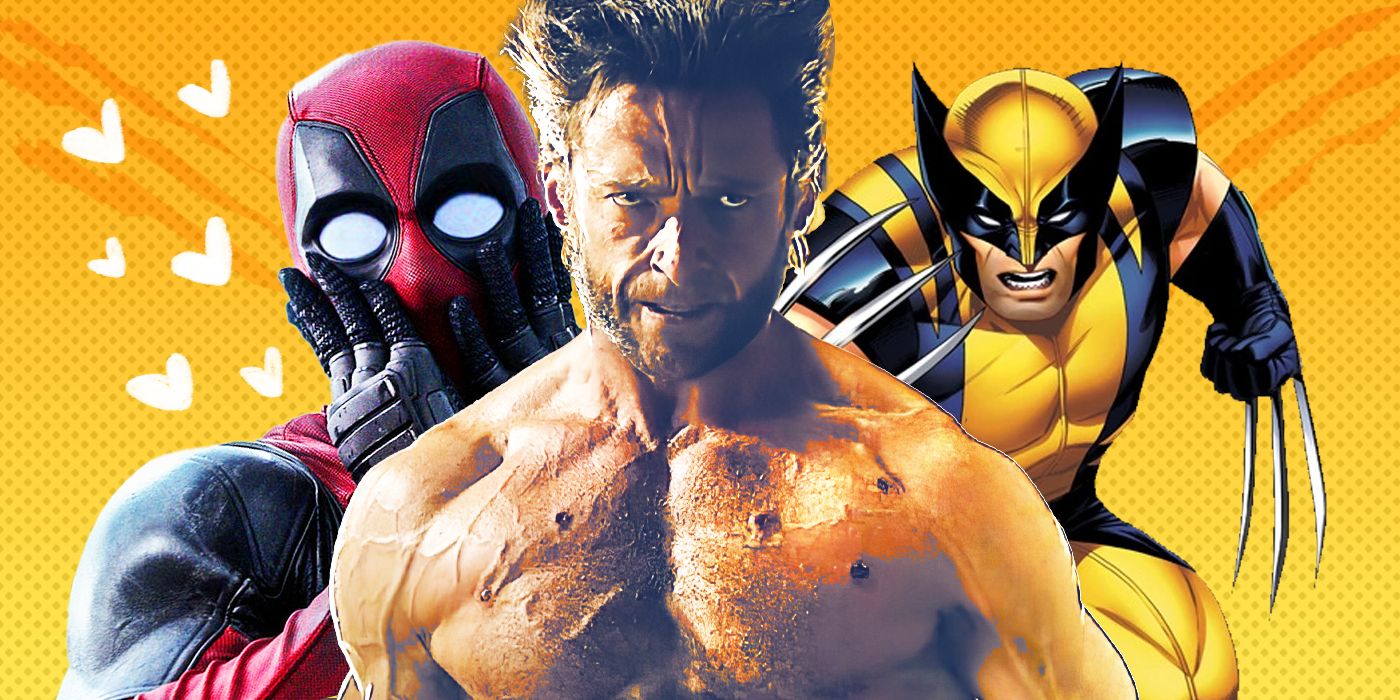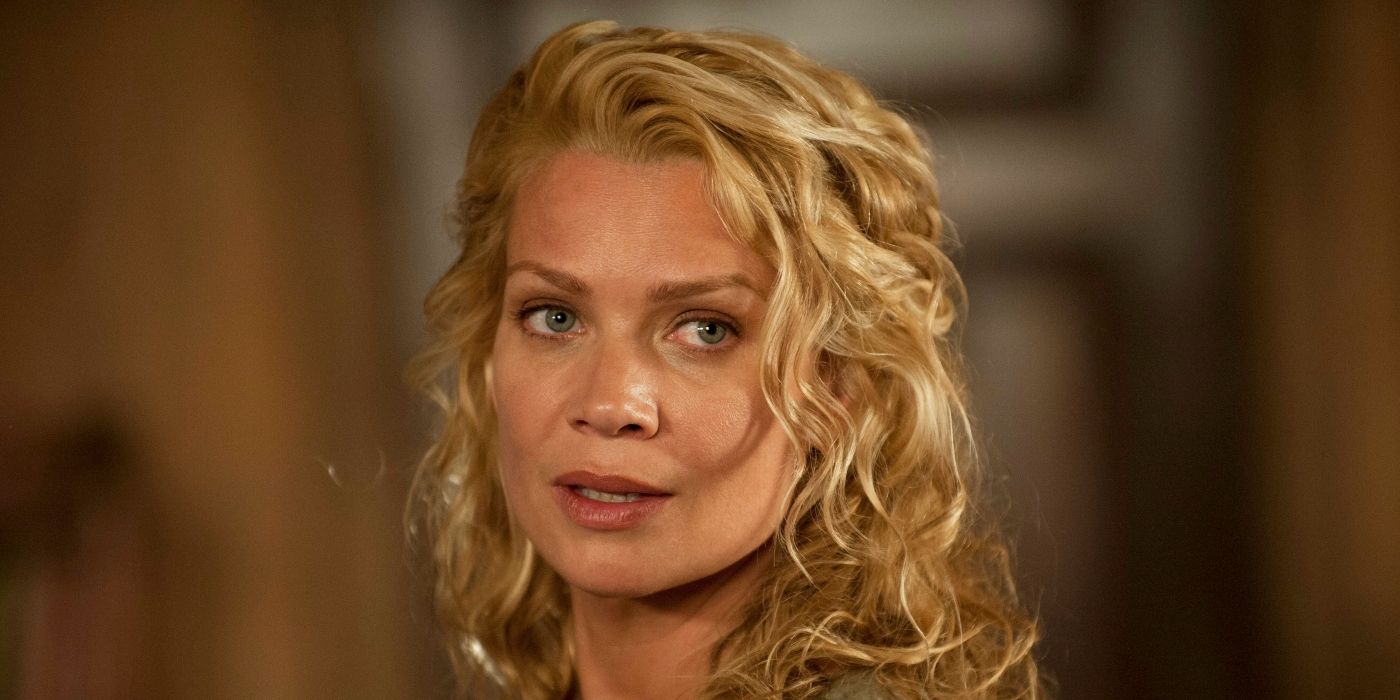The Big Picture
- Ronald D. Moore discusses For All Mankind Season 4 venturing into unexplored territory and introducing sci-fi elements.
- The show aims to stay grounded while incorporating science fiction, focusing on specific sci-fi that feels real and plausible.
- Moore also talks about Star Trek connections, storylines he’s excited for fans to see, and what’s next for him.
One of Apple TV’s most impressive original series is co-creator and writer Ronald D. Moore’s sci-fi drama For All Mankind. For the first three seasons, the show has taken viewers on a journey that only toed the sci-fi line with their alternate history timeline, but Season 4 is venturing where no man has ever gone before. Before the first episode premiered on the streamer, Collider’s Steve Weintraub spoke with Moore about the future of For All Mankind and just what exactly sci-fi means to such a grounded story.
By the end of Season 3, For All Mankind officially reached the 21st century. NASA’s Happy Valley is a fully established Mars base where former rivals have become allies as the program shifts its focus to more pressing matters. The Space Race is settled, but the mission has changed: harness asteroids and mine them for precious resources. Naturally, this new common goal will present new tensions, as well as opportunities for the Everyman to join the astronauts and scientists among the stars. Season 4 introduces Toby Kebbell, Tyner Rushing, Daniel Stern, and Svetlana Efremova and sees the return of familiar faces like Joel Kinnaman, Wrenn Schmidt, Krys Marshall, Edi Gathegi, Cynthy Wu, and Coral Peña.
In their interview, Moore talks about Season 4 moving into unexplored territory, such as “moon bases and Mars bases that never existed and different kinds of spacecraft and propulsions and nuclear fusion.” Best known for his work on Star Trek, Outlander, and Battlestar Galactica, he also discusses whether there are plans to introduce the starship, which sci-fi elements For All Mankind won’t be dealing with, and whether this series could be a prequel to a new Star Trek type series. He shares the character storyline he’s excited for fans to see, the importance of Kebbell’s Miles Dale, and what’s next for him over at Disney+. You can check out all of this and more in the video at the top of this article or in the full transcript below.
For All Mankind
Exploring the possibilities that might exist if the global space race had continued and where humanity would be now.
- Release Date
- November 1, 2019
- Cast
- Joel Kinnaman, Michael Dorman, Sarah Jones, Shantel VanSanten, Sonya Walger
- Main Genre
- Sci-Fi
- Genres
- Sci-Fi, Drama
- Rating
- TV-MA
- Seasons
- 4
COLLIDER: You’ve done a lot of cool stuff throughout your career. If someone has never seen anything you’ve worked on or seen any episodes of anything, what is the first thing you’d like them watching and why?
RONALD D. MOORE: Oh my god. That’s a tough question. You know, what’s interesting is one of the first things I showed my kids that I had ever written was a show I wrote for [Star Trek: The] Next Generation called “Data’s Day.” It was sort of like for somebody who didn’t know what Star Trek was. I thought it was a good introduction to that world, and it was also sort of an insight into the character of Data. And when I watched it through their eyes, it told me a lot about how I see the world. There’s a part of me that is somewhat Data-like of trying to understand the humanity around me and not getting all the social cues all the time. In some ways, that episode is very sort of illuminative of me [laughs] on some level.
Are We Getting a Starship in ‘For All Mankind’?
I could talk to you about Star Trek for the rest of the interview, but I’m here for For All Mankind, and I’ve got tons of questions. Every time I’ve spoken to you, and it’s been almost every season, I asked the same question, and I will ask it today. When are we getting the starship?
MOORE: [Laughs] We’re getting there. We’re getting closer all the time, man.
This is the season! This is the season where you’re introducing sci-fi elements to the show while still staying grounded. So now it’s just a matter of time.
MOORE: Yeah. I think you’re definitely on that trajectory.
I know you have a seven-season plan. In the seven-season plan, does the word “starship” show up?
MOORE: It is certainly talked about. [Laughs] I won’t give away whether it’s firmly in our plan or not.
I did a long interview with Matt [Wolpert] and Ben [Nedivi], and I asked them, and I will ask you, is For All Mankind essentially the prequel show to the eventual Star Trek show of For All Mankind? Like we’re getting the seven seasons, and then all of a sudden, there’s a spinoff show that’s 2/300 years later, and that’s the starship show.
MOORE: You never know. We haven’t really talked about it in those terms. We certainly talk about it thematically as the Star Trek prequel, like, how do you get to the optimistic kind of world that Star Trek lives in? You know, that kind of future. And that matters to us. Like, Star Trek posited this amazing future that we all kind of want to be a part of, but how do you get there? And so the show set out to sort of lay out the groundwork of how you get there. Now, whether the show actually does get there and then has its own kind of adventure like that is kind of a separate question that we haven’t really tackled.
That’s the reason I will keep asking it. [Laughs] So I’ve seen the first seven episodes of Season 4 – they’re fantastic. I love this show so much. What are you most excited for fans to actually see this season?
MOORE: I’m really interested in the Margo storyline of Margo’s life behind the Iron Curtain, seeing her struggling by herself. They saved her, they kept her out of jail, and then they just kind of put her on an iceberg, and she’s been there by herself. No one’s really taking her phone calls anymore, and yet she’s determined to work her way back to a space program one way, shape, or form. I think that’s a really interesting journey for the character, and I think it’s also just interesting to see how the Soviet Union has evolved in this alternate timeline.
One of the things you got to do this season is you guys filmed in Eastern Europe specifically for her storyline, and it adds so much because you never feel like you’re in LA.
MOORE: Right. Yeah, that was really important that when we shot those scenes that you did feel like we were someplace else.
Have you guys talked to Apple about if, god forbid, you’re not getting renewed, they tell you so you can sort of wrap something up, or have you never had that conversation with them?
MOORE: We’ve never really had that conversation with them. They’ve been very supportive of the show from the very beginning, and we’ve never felt the sort of Damocles hanging over our heads in the series so far. So, you know, either [it’s] that we’re really lucky or we’re just fools [laughs]. You never know.
‘For All Mankind’ Introduces Sci-Fi to Its Alt History
One of the things about this season, and I said it earlier, is you guys are starting to introduce science fiction elements, but the thing is, you always try to keep it as grounded as you can. Can you talk about how you’re willing to add sci-fi to it or just in general adding sci-fi to the show finally?
MOORE: Well, you know, I mean, by its nature, we’re in science fiction territory because we’re doing things like moon bases and Mars bases that never existed and different kinds of spacecraft and propulsions and nuclear fusion. So, almost by definition, it’s a science fiction universe, right? And the further we go down this road, the more it diverges from the original timeline, the more deeply science fiction the show becomes in that capacity. However, it’s still really important to us that we keep it grounded and that it all feels real and it all feels plausible. So, you know, we don’t have aliens suddenly showing up in the show, and they don’t discover alternate dimensions and time travel and certain other sci-fi tropes. We have a specific narrow band of science fiction that we’re trying to go down, and it’s important to us that we stay within our lane.
Who Is Miles Dale and Why Is He Important?
One of the things that I really like is Toby’s character, and I’m not gonna spoil anything, but he opens the door to a whole other aspect of space and For All Mankind. It feels like this is the season that’s taking a new door, if you will. Can you sort of talk about that aspect of the show and whatever you want to tease for Toby’s character?
MOORE: Toby plays a character called Miles, and Miles is a civilian who was an oil rig worker on Earth. As the fossil fuel industry started to decline because of the development of nuclear fusion and green energy on Earth, fossil fuel jobs started to go away. So, he’s one of the losers in that situation. Even though the planet’s getting better, there are certain people that are gonna be out of jobs and are going to suffer for it. So he comes from that, and he’s looking for just a way to keep his family afloat, a way to make money, and by hook and by crook, he manages to get a job with Helios on Mars.
That opens up the world of Mars and labor on Mars and sort of the upstairs-downstairs quality of, “Well, there’s the astronauts, and then there’s the civilians,” and they’re not there for the same reasons – their working conditions are very different, the way they look at each other culturally is very different, how they get paid is very different. The conflict between those two groups was something we were really interested in exploring this year, and Miles’ character was the great way to sort of get a window into that world.
What do you think would surprise fans of the show to learn about either the behind-the-scenes of the show or the actual making of the show?
MOORE: I think they’d be surprised…that Mars is really a sound stage and how difficult it is to pull this off week after week. It’s a tremendous amount of work by a lot of people and a lot of different departments to realize this. And if you were with us at the beginning of each season, you’d see everybody scrambling to essentially make a new show because we have to re-invent all the sets, new costumes; there’s new cast coming in; the older cast, you know, “How are we doing their old age makeup?”; brand-new spaceships have to be designed every year; the Mars base has to be reconstructed and rebuilt. It’s really an enormous undertaking every year to just really make it a brand-new show.
I say this as a hardcore fan: I am very thankful for all of your long hours. I know you’re involved in about 1,000 things, so what else are you working on right now?
MOORE: I’m working at several shows at 20th Century, which is part of Disney now, and I’m developing a few shows for Disney+. Nothing has been green-lit because we’re all still kind of waiting for the last strike to resolve, but I’m very hopeful. We’ll see what develops over the course of the next year.
What’s the Status of ‘For All Mankind’ Season 5?
Matt and Ben told me that this is the first time that a writers’ room hasn’t been ready for the next season or hasn’t been worked on due to the strike. I spoke to them a week or two ago, so has there been any movement in the week or two about Season 5?
MOORE: There’s definitely been more conversation about it, yeah. You can sense things are starting to pick up, and just industry-wide everyone’s starting to gear up towards, “Okay, we know it’s about to all happen again, so let’s start talking in earnest about how we prepare the way for it.”
For All Mankind Season 4 is streaming on Apple TV.
Watch on Apple TV

